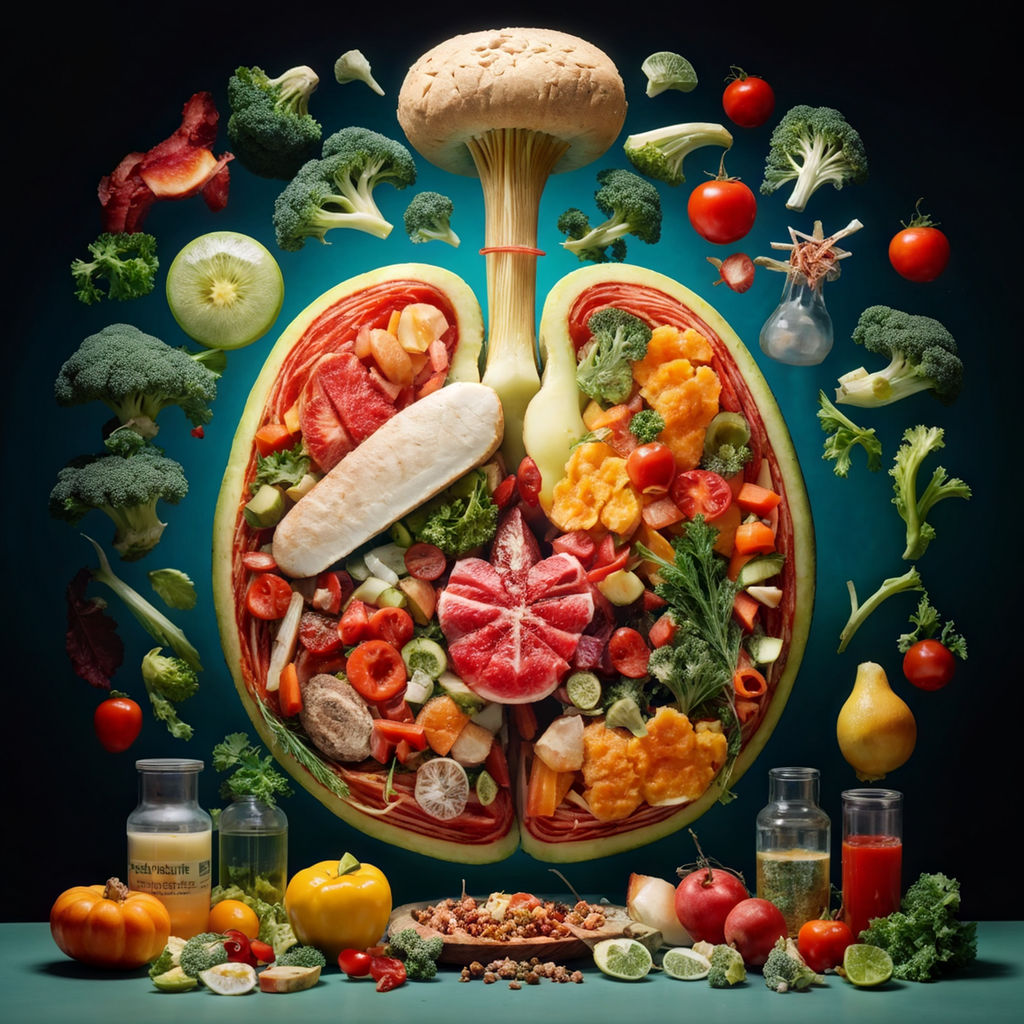We usually think of the gut as the place where food goes to get digested. While that’s true, it’s also just the beginning. Over the past decade, researchers have uncovered something remarkable: your gut is running the show far more than you think.
Inside your digestive system lives a vibrant community of bacteria, fungi, viruses, and other microbes—about 100 trillion of them. This internal ecosystem is called the gut microbiome, and it’s involved in nearly every system in your body. From your immune defenses to your mental health, your gut plays a starring role. And it turns out that the way you eat, sleep, move, and even handle stress can have a major impact on how well it functions. Let’s break it all down.
What Exactly Is the Gut Microbiome?
Think of your microbiome as your body’s personal army of microscopic workers. Each person’s microbiome is a little different, shaped by genetics, diet, environment, and lifestyle. Most of these microbes live in your colon and help process nutrients, fight off bad bacteria, and even influence how you feel emotionally. The average human body hosts about 38 trillion bacteria, and the majority of those live in your intestines. It’s a mutually beneficial setup—you feed them, they help you survive.
What Does the Gut Actually Do Besides Digestion?
-
Nutrient Absorption and Metabolism
Your gut bacteria play a key role in breaking down complex carbs and fiber—parts of food your body can’t digest on its own. When these microbes get to work, they produce short-chain fatty acids (SCFAs) like butyrate, acetate, and propionate.
These SCFAs aren’t just waste products—they’re incredibly useful. Butyrate, for example, fuels the cells lining your colon and helps keep inflammation in check. It also supports a strong gut barrier, which prevents harmful substances from leaking into your bloodstream.
The amount of SCFAs your body produces depends largely on your diet. High-fiber foods like legumes, leafy greens, and whole grains promote the growth of bacteria that make these beneficial compounds. A low-fiber, processed diet? Not so much. Simply put, feeding your gut the right foods helps it return the favor—by improving nutrient absorption, reducing inflammation, and supporting overall health.
-
Vitamin Production
Believe it or not, some of the vitamins your body depends on every day aren’t just coming from food—they’re actually being made inside your gut. Certain strains of gut bacteria have the ability to synthesize essential vitamins that your body either can’t produce at all or can’t make in large enough amounts.
For example, bacteria like Bacteroides, Bifidobacterium, and Lactobacillus are known to help produce vitamin K, which is crucial for blood clotting and bone health. Others help generate several B vitamins, including B12, B1 (thiamine), B2 (riboflavin), B6 (pyridoxine), and folate. These vitamins play key roles in energy production, brain function, red blood cell formation, and nervous system support.
What’s more, the balance of your gut bacteria affects how efficiently these vitamins are made and absorbed. When your gut microbiome is thriving—thanks to a healthy, fiber-rich diet—these nutrient-producing bacteria can flourish. But if your gut is out of balance (due to poor diet, antibiotics, or stress), vitamin production may drop, which can impact your health over time.
So while food is still the main source of most vitamins, your gut acts like a natural supplement factory—quietly working in the background to help keep your body running smoothly.
-
Immune Function
When you think of your immune system, you might picture white blood cells or lymph nodes—but the real powerhouse is your gut. Around 70% of your immune system is based in your digestive tract. That’s not a coincidence. Your gut is constantly exposed to outside substances—bacteria, viruses, allergens, food particles—so it makes sense that it’s where your body does most of its immune “training.”
Your gut lining is like a smart security system. It decides what gets in and what gets blocked. Meanwhile, your gut bacteria are working behind the scenes to help immune cells identify which substances are harmless (like food and friendly microbes) and which ones are potential threats.
A healthy, balanced gut helps your immune system stay sharp without overreacting. But if your gut microbiome is out of balance, your body might start reacting to things it shouldn’t—leading to issues like food sensitivities, chronic inflammation, or even autoimmune disorders. In short, when your gut is strong, your immune system is smarter and more efficient
-
Mental Health and the Gut-Brain Axis
When you think of your immune system, you might picture white blood cells or lymph nodes—but the real powerhouse is your gut. Around 70% of your immune system is based in your digestive tract . That’s not a coincidence. Your gut is constantly exposed to outside substances—bacteria, viruses, allergens, food particles—so it makes sense that it’s where your body does most of its immune “training.”
Your gut lining is like a smart security system. It decides what gets in and what gets blocked. Meanwhile, your gut bacteria are working behind the scenes to help immune cells identify which substances are harmless (like food and friendly microbes) and which ones are potential threats.
A healthy, balanced gut helps your immune system stay sharp without overreacting. But if your gut microbiome is out of balance, your body might start reacting to things it shouldn’t—leading to issues like food sensitivities, chronic inflammation, or even autoimmune disorders. In short, when your gut is strong, your immune system is smarter and more efficient.
-
Your gut and brain talk to each other constantly through something called the gut-brain axis. Gut microbes even produce neurotransmitters—like serotonin, dopamine, and GABA—that help regulate mood and stress. In fact, about 90% of serotonin is produced in the gut.
What Harms Your Gut—and What Helps It?
1. Diet: The Biggest Player in Gut Health
A fiber-rich, plant-based diet is one of the best ways to support your gut microbiome. Whole foods like leafy greens, legumes, nuts, berries, and fermented foods feed beneficial bacteria and help crowd out harmful ones.
The American Gut Project, which analyzed microbiomes from over 11,000 people, found that those who ate more than 30 different plant foods per week had the most diverse and resilient gut flora.. Microbial diversity is a good thing—it makes your gut more adaptable and protective.
On the flip side, a diet heavy in sugar, saturated fats, and processed foods can lead to microbial imbalance, a state called dysbiosis. This is associated with everything from bloating to inflammatory diseases.
2. Probiotics and Prebiotics: What’s the Difference?
-
Probiotics are live, helpful bacteria. You’ll find them in fermented foods like yogurt, kefir, sauerkraut, kimchi, and miso. Probiotic supplements can also help, especially after taking antibiotics.
-
Prebiotics are special fibers that act as food for your good bacteria. Examples include garlic, onions, leeks, bananas, and oats.
Studies show that taking specific probiotic strains can reduce the severity of diarrhea, boost immunity, and even improve mood. Prebiotics, meanwhile, increase the production of SCFAs and enhance gut barrier function.
3. Antibiotics and Common Medications
Antibiotics are lifesavers, but they’re not gut-friendly. They don’t discriminate between good and bad bacteria—wiping out large chunks of your microbiome in the process. According to a study in PNAS, just one course of antibiotics can disrupt your gut bacteria for months .
Other medications—like NSAIDs, proton pump inhibitors, and antipsychotics—also affect your gut. Long-term use may reduce microbial diversity and increase the risk of gut inflammation.
4. Sleep and Stress Levels
Your gut and nervous system are deeply connected. When you’re stressed, your body releases cortisol, which can change your gut bacteria and increase gut permeability—commonly known as “leaky gut”.
A 2016 study found that high cortisol levels correlate with lower amounts of beneficial bacteria like Lactobacillus. And just two nights of poor sleep can alter your gut composition .
5. Exercise: Not Just for Your Muscles
Getting regular physical activity isn’t just good for your heart or waistline—it also supports your gut. A study comparing athletes and non-athletes found that athletes had a more diverse microbiome and higher levels of health-promoting bacteria.
Even moderate movement—like walking, biking, or yoga—can boost gut health by reducing inflammation and improving digestion.
Signs Your Gut Might Be Out of Balance
You don’t need lab work to spot a struggling gut. Some red flags include:
-
Frequent bloating, gas, or constipation
-
Unexplained fatigue
-
Food intolerances
-
Skin breakouts or eczema
-
Mood swings or increased anxiety
-
Frequent colds or infections
If several of these sound familiar, it might be time to give your gut some love.
Simple Daily Habits to Keep Your Gut Happy
-
Eat a variety of whole plant foods. Aim for at least 25–30 different types weekly.
-
Include fermented foods. A spoonful of sauerkraut or a glass of kefir a few times a week goes a long way.
-
Cut down on processed junk. Swap chips and soda for real, fiber-rich foods.
-
Move your body daily. Even a 20-minute walk helps.
-
Sleep at least 7 hours a night. Your gut works on its own schedule—respect it.
-
Manage your stress. Breathwork, meditation, or even just spending time outdoors can help.
Your gut isn’t just doing behind-the-scenes work—it’s actively shaping your health every day. When your gut microbiome is thriving, you’re more likely to feel energized, emotionally balanced, and resilient against illness. And while genetics play a part, the choices you make—what you eat, how you move, how you sleep—matter even more.
Take care of your gut, and it’ll take care of you.






